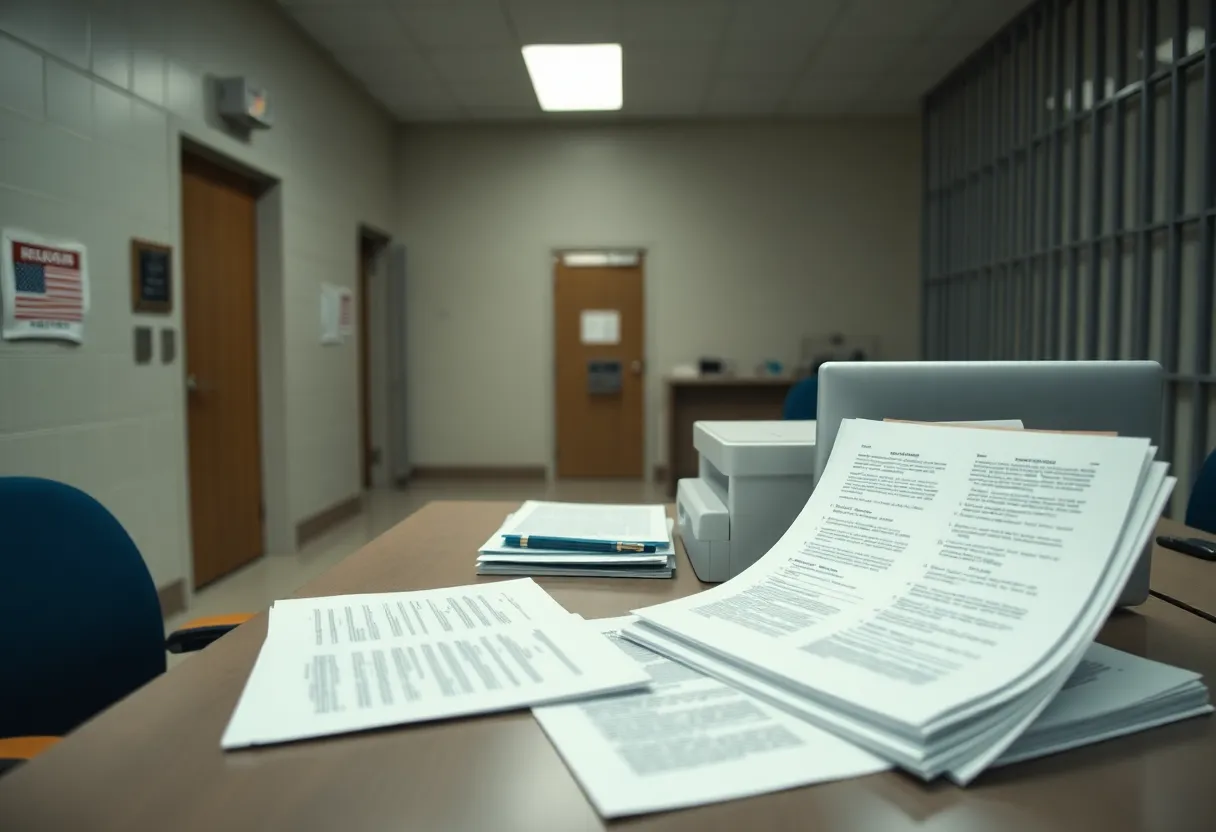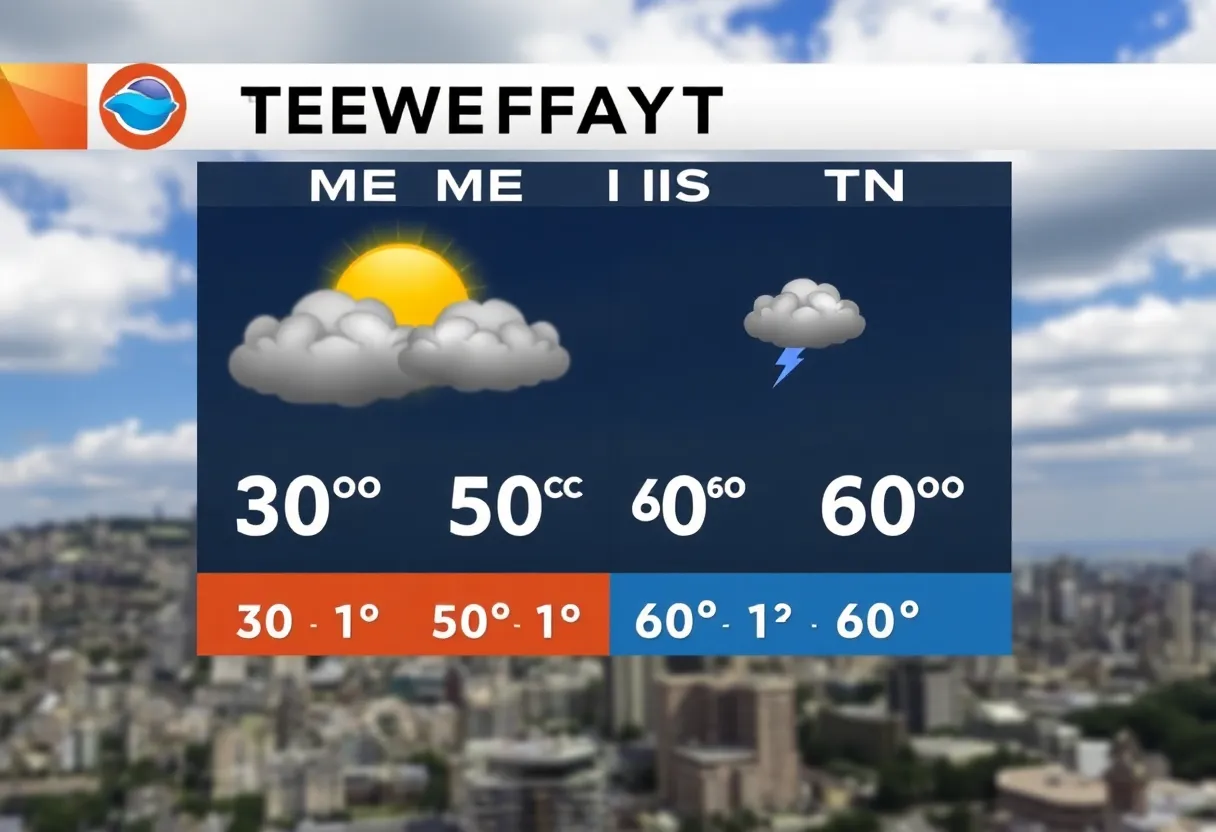City Council in Memphis Pushes Back Against MATA’s Proposed Cuts
Memphis, Tennessee — On a bustling Tuesday afternoon, the City Council of Memphis engaged in an intense debate with the interim CEO of the Memphis Area Transit Authority (MATA), Bacarra Mauldin. The meeting centered around MATA’s alarming proposal to implement significant cutbacks that could drastically reshape public transportation in the area.
Mauldin’s presentation laid out a plan that could lead to layoffs for a large portion of the agency’s workforce and the termination of several bus routes. The intended budget for this year stands at $67.8 million, which unfortunately is about $18 million short of what MATA claims is necessary to maintain its current level of service. This would mean that nearly half of MATA’s 512 employees could lose their jobs as the agency tries to close its budget gap.
“We recognize that these are radical changes, but you all are expecting radical results,” Mauldin explained to the Council, justifying the severe measures they may have to take. Her comments came in response to mounting frustrations from City Council members who questioned the agency’s financial transparency. Councilwoman Yolanda Cooper-Sutton was particularly vocal, expressing concern over the lack of details associated with a recent $20 million bridge loan the council had approved for MATA. “We are just asking, where is our 20 million dollars? That’s taxpayers’ money,” she pressed Mauldin.
The situation sounds dire, especially with the looming deadline of November 3 for implementing these proposed cutbacks. If the Council does not approve MATA’s budget, it could exacerbate the situation even further.
MATA’s financial woes have spiraled due to several interconnected issues. Rising operational costs, a staggering decline in ridership, and stagnant funding from government sources have placed the agency in a tough spot. Of the approximately $34 million that MATA generates, only around $3.7 million comes from passenger fares and advertising. The bulk of its funding—around $30 million—comes from the city of Memphis, with smaller amounts contributed by federal, state, and county sources.
During the tense discussion, Councilwoman Jerri Green highlighted the community’s concerns. “You’re cutting routes to poor people,” she exclaimed. “What happens when these routes are cut? What happens to these people?” Her remarks resonated with many in the room, who know how vital public transport is for Memphis residents, particularly those in low-income neighborhoods.
Adding to the complexity of MATA’s situation is the indefinite suspension of the downtown trolley service. A concerning brake issue discovered back in July has led to a complete stoppage of the trolley lines, putting even more strain on public transportation options. Mauldin pointed out that fixing the brake problems would cost around $200,000 per trolley, a hefty price tag the agency simply cannot afford right now. The trolley division has already seen the layoff of 18 employees, but some members of the maintenance team are still on board, keeping hope alive for future reinstatement of trolley service.
In a striking moment that epitomized the frustration felt among council members, Councilwoman Walker not only challenged Mauldin on maintenance records for the trolleys but also theatrically tore up MATA’s budget proposals and tossed the pieces into the air, saying, “The people have spoken.”
Looking to the future, Mauldin indicated that despite the current cuts, there may be opportunities for MATA to address its “long-term systemic issues.” She assured council members that everything is on the table as MATA works to stabilize its budget and improve its systems. However, many remain skeptical.
As the City Council prepares to vote on the proposed budget changes, the clock is ticking. Community members and local leaders alike are eagerly watching, concerned about how these drastic cutbacks will affect transportation accessibility in Memphis. The stakes are high, and the balance between financial viability and meeting the needs of the community hangs in the balance. With many lives and livelihoods depending on MATA’s service, both the agency and the City Council face a significant challenge ahead.
Time will tell how Memphis navigates these troubled waters, but today’s passionate debate underscores the urgency of the situation. Only time will reveal whether MATA can emerge from this crisis stronger and more sustainable, or whether deeper cuts will further erode public trust and accessibility.

Author: STAFF HERE MEMPHIS WRITER
The MEMPHIS STAFF WRITER represents the experienced team at HEREMemphis.com, your go-to source for actionable local news and information in Memphis, Shelby County, and beyond. Specializing in "news you can use," we cover essential topics like product reviews for personal and business needs, local business directories, politics, real estate trends, neighborhood insights, and state news affecting the area—with deep expertise drawn from years of dedicated reporting and strong community input, including local press releases and business updates. We deliver top reporting on high-value events such as Beale Street Music Festival, Elvis Week, and Memphis in May International Festival. Our coverage extends to key organizations like the Greater Memphis Chamber and the Memphis Convention & Visitors Bureau, plus leading businesses in logistics, healthcare, and music that power the local economy such as FedEx, St. Jude Children's Research Hospital, and AutoZone. As part of the broader HERE network, including HEREBristol.com, HEREChattanooga.com, HEREKnoxville.com, and HERENashville.com, we provide comprehensive, credible insights into Tennessee's dynamic landscape.






